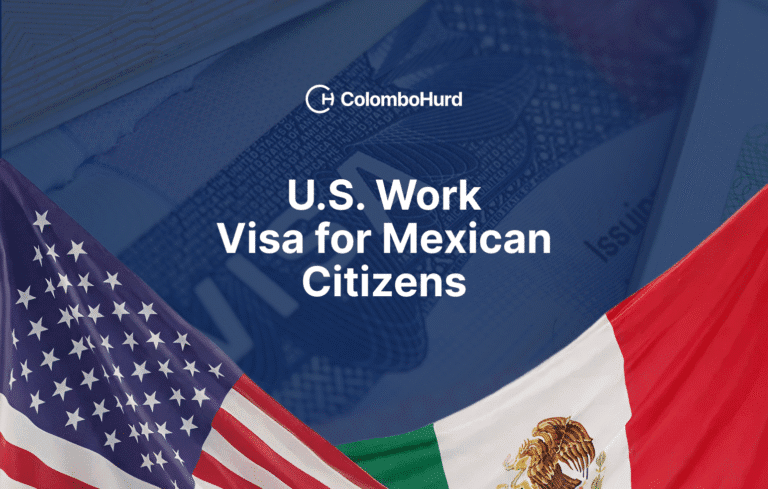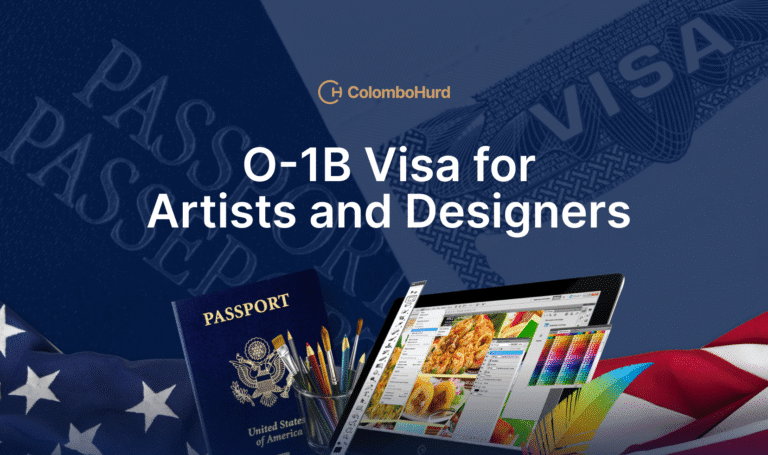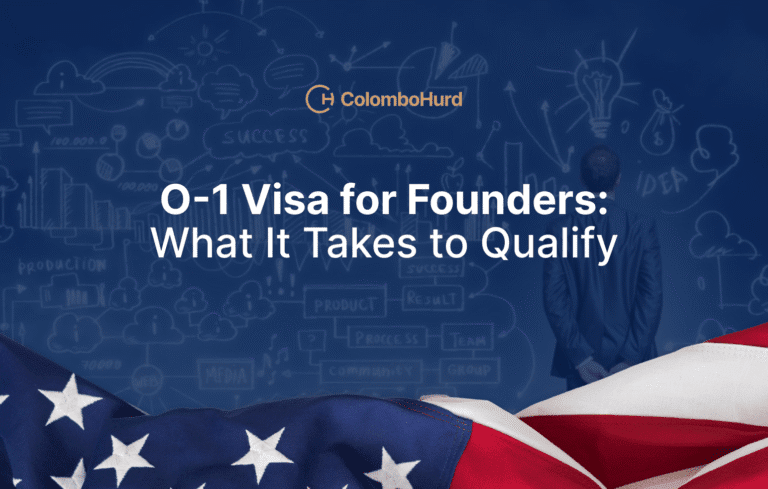
Canadian professionals seeking to work in the United States have multiple pathways available, but the right choice depends on your qualifications, career goals, and whether you’re seeking temporary work authorization or permanent residence. For high-skilled professionals such as engineers, scientists, executives, researchers, entrepreneurs, and specialists, the most strategic pathways offer either direct routes to green cards or temporary visas that position you for long-term success.
This guide focuses on work visas that align with the U.S. immigration system’s preference for exceptional talent. Strong options for Canadian professionals include self-petition green cards (EB-1A and EB-2 NIW), extraordinary ability work visas (O-1), intracompany transfer visas (L-1), and investor pathways (EB-5, E-2, E-1). We’ll also cover alternative options like TN and H-1B visas.
Permanent vs. Temporary: Understanding Your Options
Before diving into specific visa categories, it’s important to understand the fundamental difference between pathways:
| Pathway Type | Visa Categories | Key Advantages | Best For |
| Permanent Residence (Green Cards) | EB-1A, EB-2 NIW, EB-5 | No renewals required, complete career freedom, direct path to citizenship, no employer dependency | High-skilled professionals or investors seeking long-term stability |
| Temporary Work Authorization | O-1, L-1, E-2, TN, H-1B | Faster initial approval, flexibility to test U.S. opportunities, can lead to green cards | Professionals, entrepreneurs or investors seeking to reside in the US temporarily with the ability to work and travel. |
The best approach depends on your individual circumstances and level of experience. Exceptional Canadian professionals may consider pursuing permanent residence through self-petition categories, which can bypass the need for temporary visas and their associated renewals and restrictions. However, it’s advisable to consult with an immigration lawyer to carefully weigh all available options.
Employment-Based Green Cards: Direct Path to Permanent Residence
For Canadians seeking permanent residence, employment-based green cards offer the most direct path. Unlike temporary work visas, these categories provide permanent resident status from the outset, with no need to renew or maintain non-immigrant intent.
EB-1A: Extraordinary Ability Green Cards
The EB-1A visa is designed for individuals who have reached the top of their profession. This category doesn’t require employer sponsorship, and you can self-petition, giving you complete control over your immigration process and career flexibility.
Who Qualifies: Professionals demonstrating extraordinary ability in science, technology, business, healthcare, education, athletics, or the arts. You must meet at least three of ten criteria established by USCIS, including:
- Receipt of major nationally or internationally recognized prizes or awards
- Membership in associations requiring outstanding achievements
- Published material about you in professional or major media
- Evidence of your original contributions of major significance to your field
- Authorship of scholarly articles in professional journals or major media
- Display of your work at artistic exhibitions or showcases
- Performance in a leading or critical role for organizations with distinguished reputations
- Command of a high salary or significantly higher remuneration compared to others
- Commercial successes in the performing arts
- Other comparable evidence of extraordinary ability
Opportunities Across All Industries:
- Technology professionals including AI researchers, software engineers, and data scientists
- Medical researchers and healthcare innovators
- Biomedical engineers and medical device specialists
- Scientists in genomics, nanotechnology, and emerging fields
- Business executives, founders, and entrepreneurial leaders
- Academic researchers and professors
- Other exceptional professionals across diverse fields
Recent Client Successes: We recently assisted an Italian AI expert in obtaining EB-1A approval after receiving a Request for Evidence. Our team demonstrated his extraordinary contributions to artificial intelligence, including founding a startup that served over 600,000 users and his role as Founding Data Scientist at Replit, a technology company that raised nearly $200 million in funding.
We also secured an EB-1A approval for a Mexican AI researcher whose groundbreaking work in intelligent systems and computer science has shaped global advancements in AI reliability and performance. Despite an RFE, our attorneys reframed her case to clearly demonstrate her extraordinary ability, resulting in approval in just over three months.
Continuing our success in supporting leaders across science and technology, we also helped our Russian client, a distinguished oncology researcher and physician secure an EB-1A approval. With more than 25 years of clinical and academic experience, he pioneered innovative colorectal cancer treatments recognized internationally for improving patient outcomes. Despite an RFE, we presented a compelling record of his extraordinary ability, resulting in approval and allowing him to continue his life-saving work in the United States.
Key Advantage: Self-petition capability means you’re not tied to a specific employer. You can change jobs, start businesses, or pursue entrepreneurial ventures while your green card application is pending and after approval.
EB-2 National Interest Waiver: Advanced Professionals Serving U.S. Interests
The EB-2 NIW allows qualified professionals to obtain permanent residence when their work benefits the United States. Like EB-1A, this pathway permits self-petitioning without employer sponsorship.
Who Qualifies: Professionals with an advanced degree or those with exceptional ability whose proposed work has substantial merit and national importance. You must demonstrate you’re well-positioned to advance your endeavor and that waiving the normal job offer requirement benefits the United States.
The Three-Prong Test: To qualify for an EB-2 NIW, you must establish:
- Substantial Merit and National Importance: Your proposed work must have significant value to the United States.
- Well-Positioned to Advance the Endeavor: You must have the education, skills, knowledge, and track record to successfully carry out your proposed work
- Balance of Interests: It must benefit the United States to waive the job offer and labor certification requirements by demonstrating that the urgency, importance, or unique value of your work makes the traditional employment-based process impractical or counterproductive
Not Limited to a Single Profession: Like the EB-1A, this pathway is not tied to just one field. Impactful contributions are recognized across diverse fields such as cybersecurity professionals developing security technologies for critical infrastructure, healthcare innovators improving medical access or device reliability, environmental scientists working on sustainable solutions, STEM educators advancing educational priorities, engineers improving workplace safety or logistics, and researchers addressing national priorities.
Recent Successes: We secured an EB-2 NIW approval for a Chilean cybersecurity expert specializing in advanced security systems protecting critical infrastructure. We demonstrated alignment with executive orders on artificial intelligence and cybersecurity initiatives. In another case, we obtained EB-2 NIW approval in just one week through premium processing for a global technology company senior manager whose logistics optimization work reduces emissions and strengthens supply chains.
In another case, we secured EB-2 NIW approval for a Brazilian technology consultant specializing with a background in engineering and years of experience leading fintech innovation. Our attorneys demonstrated how his work supports U.S. priorities, resulting in approval without an RFE.
We also achieved EB-2 NIW approval for a Saudi Arabian cybersecurity professional whose machine-learning-based threat-response systems strengthen national infrastructure and data protection. Backed by strong credentials, his petition was swiftly approved, allowing him to establish a cybersecurity consulting firm in San Francisco.
Why EB-2 NIW Works: The National Interest Waiver aligns your professional expertise with U.S. policy priorities. Our approach involves strategic positioning of your work within national initiatives, comprehensive documentation of qualifications and impact, expert letters from industry leaders, and clear articulation of why waiving job offer requirements benefits the country.
With over 2,500 approvals in EB-2 NIW and EB-1A categories since 2023, Colombo & Hurd has extensive experience helping exceptional Canadian professionals obtain permanent residence through self-petition pathways.
Temporary Work Visas for High-Skilled Professionals
When permanent residence isn’t the immediate goal or you need faster authorization, several temporary work visas serve Canadian skilled workers well. These options allow you to work in the U.S. while maintaining flexibility.
O-1 Visa: Extraordinary Ability for Temporary Employment
The O-1 visa is for individuals with extraordinary ability or achievements who need temporary work authorization. While similar to EB-1A in its requirements, O-1 provides a non-immigrant pathway that can be extended indefinitely.
Who Qualifies: Individuals who have risen to the top of their field in science, education, business, athletics (O-1A), or arts and entertainment (O-1B). You must demonstrate extraordinary ability through sustained national or international acclaim.
How It Works: A U.S. employer or agent must sponsor your O-1. The petition generally requires an advisory opinion from a peer group or professional association. O-1 visas are granted for the time needed to cover your project or employment, up to 3 years initially, with unlimited 1-year extensions.
Recent Success: We secured O-1A approval for an international attorney specializing in complex international legal disputes and arbitration cases, including handling significant legal battles for Russia’s largest petrochemical company and playing a key role in $50 billion arbitral award litigation.
Strategic Advantage: While officially non-immigrant, O-1 has a greater degree of flexibility regarding intent in practice than many other non-immigrant visas. Many O-1 holders successfully transition to green cards through EB-1A or EB-2 NIW categories. The unlimited extensions make O-1 a viable long-term option for continued projects.
L-1 Visa: Intracompany Transfer for Multinational Companies
The L-1 visa facilitates transfers of key employees from international offices to U.S. operations, supporting business expansion and knowledge transfer for Canadian professionals working with multinational companies.
Two Categories:
- L-1A: For executives and managers transferring to oversee U.S. operations, with a path to permanent residence through EB-1C category
- L-1B: For employees with specialized knowledge of company systems, processes, or technical expertise
Who Qualifies: You must have worked for a related company abroad for at least 1 year within the past 3 years in a managerial, executive, or specialized knowledge role. The U.S. entity must have a qualifying relationship (parent, subsidiary, affiliate, or branch) with the foreign company.
Duration: L-1A is initially granted for up to 3 years (1 year if establishing a new U.S. office) and can extend to 7 years maximum. L-1B can extend to 5 years maximum. Both categories allow dual intent, making them attractive for professionals pursuing permanent residence.
Family Benefit: L-2 spouses can work in the U.S. without needing separate employment authorization, providing significant flexibility for families.
Additional Benefit for Canadian Nationals: Rather than having to wait for a visa at a US Consulate, Canadian Nationals are able to obtain the L-1 directly at entry from CBP. This saves significant time and resources and serves to significantly expedite the process. Canadian nationals must still meet all other requirements of the L-1 to obtain entry.
Investor and Entrepreneur Pathways
Canadian citizens with capital to invest or entrepreneurial ambitions have specialized visa options that combine business ownership with immigration benefits.
EB-5: Investment-Based Permanent Residence
The EB-5 visa grants green cards to foreign investors who make qualifying job-creating investments in U.S. commercial enterprises. This pathway provides permanent residence based on capital investment rather than employment or extraordinary ability.
Investment Requirements:
- Standard investment: $1,050,000
- Targeted Employment Areas or Rural Areas: $800,000
- Must create or preserve at least 10 full-time jobs for U.S. workers
Investment Options: You can invest directly in a new commercial enterprise you create or manage, or invest through USCIS-approved regional centers that pool investor capital for development projects.
Process: File I-526E petition demonstrating qualifying investment and job creation plan, if proceeding through a Regional Center. If in the US, the investor can file the concurrent conditional green card application or if remaining in Canada can process through the US Consulate to obtain conditional green card status for two years after I-526E approval. Two years after conditional residency approval the investor must, then file the I-829 petition to remove conditions and obtain permanent residence.
E-2: Treaty Investor Visa for Business Owners
The E-2 visa enables Canadian citizens to invest capital in a U.S. business and direct its operations. This non-immigrant visa works well for entrepreneurs who want to start or purchase businesses without the higher investment threshold of EB-5.
Who Qualifies: Canadian citizens making a substantial investment in a bona fide U.S. enterprise. While there’s no fixed dollar minimum, the investment should be sufficient to ensure successful operation which is generally $800,000 or more depending on the business type.
How It Works: The investment must be at risk and committed to an active, operational business (not passive investment). You must develop and direct the enterprise, either as owner or in a managerial/essential employee role. The E-2 visa may also be granted to key employees of investor companies.
Duration: Canadian nationals receive an E-2 Visa valid for 5 years The investor is also able to obtain unlimited renewals as long as the business continues operating and meeting E-2 requirements. E-2 spouses automatically are provided lawful work authorization upon entry into the U.S. without the need to apply separately for work authorization.
E-1: Treaty Trader Visa
The E-1 visa is for individuals or companies conducting substantial trade between the U.S. and Canada. At least 50% of international trade must be between the two countries, and the trade must be substantial (sizable and continuing exchange of goods, services, or technology).
E-1 status is granted in 2-year increments with unlimited renewals. Like E-2, E-1 spouses can work in the U.S.
Additional Work Visa Options for Canadian Citizens
In addition to the pathways for Canadian professionals listed above, several additional options exist for specific situations.
TN Visa: USMCA Professional Workers
The TN visa, created under NAFTA and now governed by USMCA, allows Canadian professionals in specific occupations to work in the U.S. The visa covers professions like engineers, accountants, scientists, and teachers listed in the USMCA agreement.
Canadian citizens can obtain TN status directly at U.S. ports of entry by presenting proof of citizenship, a job offer letter, and credentials. TN status is granted for up to 3 years and can be renewed indefinitely. However, TN requires maintaining non-immigrant intent, complicating transitions to permanent residence.
H-1B Visa: Specialty Occupation Workers
The H-1B visa is for specialty occupations requiring at least a bachelor’s degree. While available to Canadians, H-1B faces significant challenges: an annual cap of 85,000 visas (65,000 plus 20,000 for U.S. advanced degrees) and a lottery system when applications exceed availability. Canadian citizens have no exemption from this lottery.
H-1B allows dual intent, making it attractive for those pursuing green cards. Status is initially granted for 3 years and can extend to 6 years maximum.
Other Specialized Categories
Additional visa categories serve specific professions: P-1 for internationally recognized athletes and entertainment groups, J-1 for exchange visitor programs including internships and research positions, R-1 for religious workers, and H-2A/H-2B for seasonal agricultural and non-agricultural workers.
Comparing Work Visa Options
| Visa Type | Purpose | Duration | Employer Sponsorship Required | Path to Green Card | Best For |
| EB-1A | Permanent residence | Permanent | No (self-petition) | N/A – is green card | Individuals at the top of their field that can demonstrate extraordinary ability |
| EB-2 NIW | Permanent residence | Permanent | No (self-petition) | N/A – is green card | Advanced professionals serving U.S. interests |
| O-1 | Temporary work | 3 years initially, unlimited 1-year renewals | Yes | Indirect – can pursue EB-1A/NIW | Exceptional individuals with employer or agency sponsorship |
| L-1A | Temporary work | Up to 7 years | Yes (intracompany transfer) | Yes – EB-1C pathway | Executives or managers with multinational companies |
| L-1B | Temporary work | Up to 5 years | Yes (intracompany transfer) | Possible | Specialized knowledge workers |
| EB-5 | Permanent residence | Permanent (after conditions removed) | No (investment-based) | N/A – is green card | Investors with $800K-$1.8M capital |
| E-2 | Temporary work | Unlimited 2-year renewals | Yes (own business) | No direct path | Entrepreneurs and business owners |
| TN | Temporary work | Unlimited 3-year renewals | Yes | No – non-immigrant intent | Quick employment start in listed professions |
| H-1B | Temporary work | Up to 6 years | Yes | Yes – can pursue while in status | Specialty occupation workers (lottery required) |
How to Choose Your Path to US Employment
The optimal visa strategy depends on your qualifications, career goals, and timeline.
If you have extraordinary achievements and are at the top of your field: Consider EB-1A for permanent residence or O-1 for temporary work authorization. Both recognize exceptional ability, but EB-1A provides permanent status while O-1 offers more immediate approval with flexible renewals.
If you’re an advanced professional serving U.S. interests: The EB-2 NIW provides a strategic path to permanent residence without employer sponsorship. This works particularly well if your work aligns with national priorities in cybersecurity, healthcare, environmental science, or technology.
If your multinational employer is transferring you: L-1 provides a direct pathway with the advantage of potential permanent residence through EB-1C for executives and managers. L-2 spouse work authorization adds family flexibility.
If you’re an investor or entrepreneur: E-2 offers unlimited renewals with lower investment than EB-5, while EB-5 provides direct permanent residence for higher capital investments with job creation requirements.
If you need quick employment authorization: TN visa offers same-day approval at the border for qualifying professions, though the non-immigrant intent requirement limits long-term planning.
For long-term planning: Prioritize visas allowing dual intent (H-1B, L-1, O-1) or pursue self-petition green cards directly (EB-1A, EB-2 NIW). These options don’t require maintaining ties to Canada and position you for permanent residence.
Strategic Advantages of Self-Petition Green Cards
For high-skilled Canadian professionals, self-petition green cards (EB-1A and EB-2 NIW) offer distinct advantages over employer-sponsored pathways:
Career Independence:
- Change employers at any time without jeopardizing your immigration status
- Start your own business or pursue entrepreneurial ventures
- Accept promotions, lateral moves, or new opportunities freely
- No risk of losing status if laid off or terminated
Application Control:
- You decide when to file and control the entire strategy
- No dependence on employer immigration budgets or priorities
- Direct communication with your attorney throughout the process
- Ability to strengthen your case on your timeline
Permanent Solution:
- Skip temporary visa renewals and extensions entirely
- Proceed directly to permanent residence from Canada
- No maximum time limits or concerns about maintaining status
- Clear path to U.S. citizenship after 5 years as permanent resident
Family Benefits:
- Spouse and unmarried children under 21 included in application
- Entire family receives permanent residence together
- No separate applications or lengthy waits for family members
- Spouses can work immediately upon receiving green cards
Streamlined Process:
- No labor market testing (PERM) required
- No need to prove no qualified U.S. workers exist
- Avoid lengthy recruitment and advertising requirements
- Focus on demonstrating your qualifications, not job market conditions
Work With Immigration Attorneys Who Understand Your Journey
At Colombo & Hurd, we specialize in business immigration for exceptional professionals. Founded by immigrants for immigrants, we understand your journey because we’ve lived it and our personal experiences inform our practice every day.
We’ve secured over 10,000 successful visa and green card approvals for clients from more than 100 countries, with more than 2,000 approvals in EB-1A and EB-2 NIW categories over the past three years alone.




